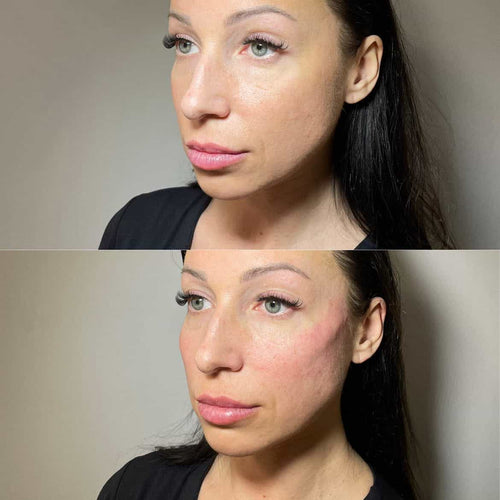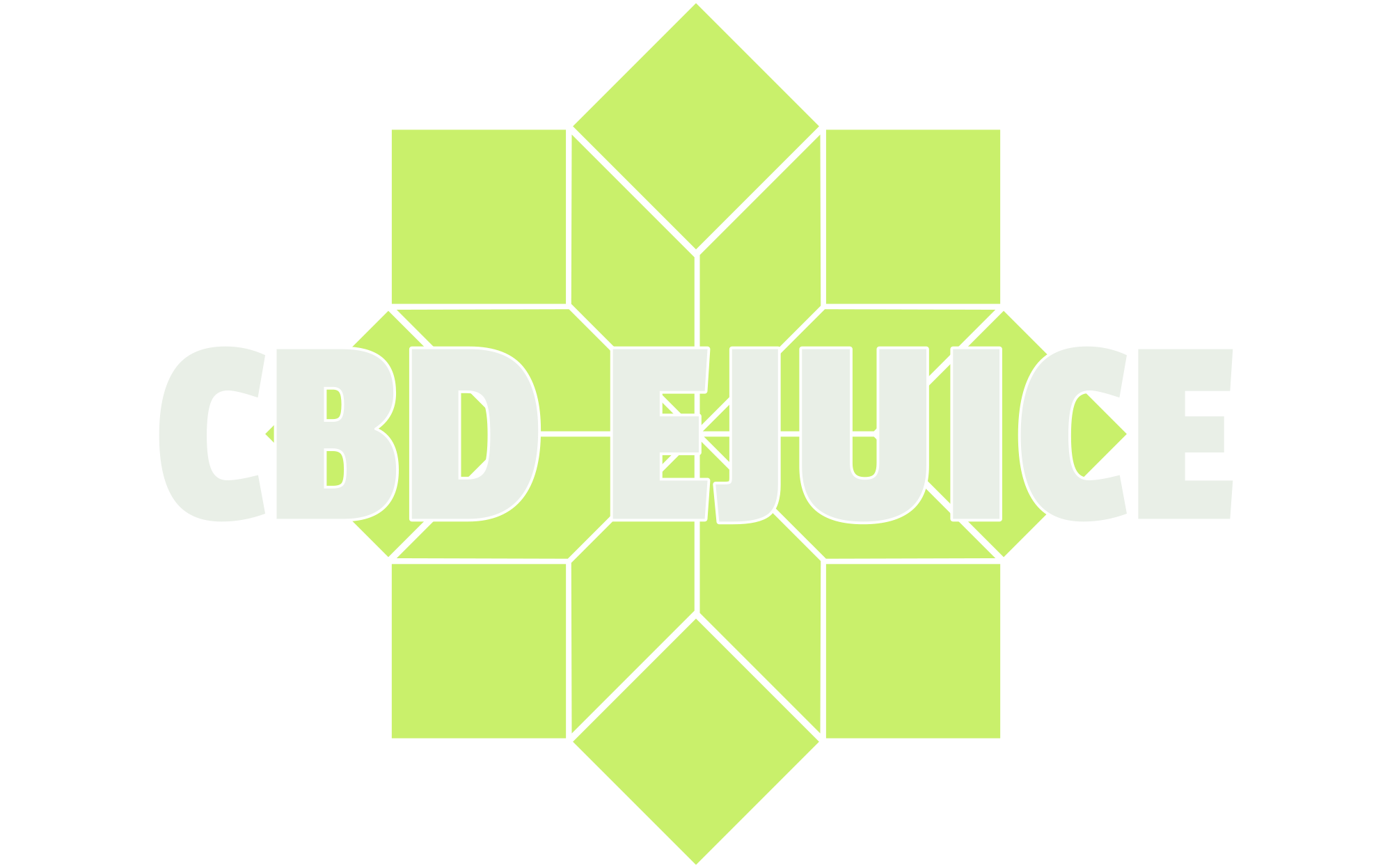How To Immediately Relieve Sinus Pressure?
Book a Dermal Filler Session with Dr. Laura Geige Today
Home Remedies
Saline Rinse
Sinus pressure can be incredibly uncomfortable, making it hard to concentrate, sleep, or even enjoy a good meal.
While there are prescription medications available for sinus relief, sometimes a simple home remedy is all you need.
One effective and easy-to-perform remedy is a saline rinse.
Saline solutions mimic the natural fluid found in your nasal passages, helping to thin mucus and flush out irritants that are causing congestion and pressure.
Creating a saline solution at home is straightforward. You can use:
-
Plain warm water and salt: Mix 1/4 to 1/2 teaspoon of non-iodized salt with 8 ounces of warm water.
-
A pre-mixed saline solution: These are readily available at drugstores and grocery stores.
To perform a saline rinse, you’ll need a neti pot or squeeze bottle designed for nasal irrigation.
Follow these steps:
-
Tilt your head over a sink and lean forward.
-
Gently insert the nozzle of the neti pot or squeeze bottle into one nostril, allowing the saline solution to flow through and out the other nostril.
-
Repeat on the other side.
After rinsing, blow your nose gently to clear any remaining fluid.
You can perform a saline rinse several times a day as needed, especially when experiencing sinus pressure.
Remember to always use distilled or sterilized water to avoid introducing bacteria into your sinuses.
If you have any concerns about using a saline rinse, consult with your doctor.
Steam Inhalation
Sinus pressure can be incredibly uncomfortable, making it difficult to breathe and even causing headaches. Luckily, there are several home remedies you can try to find quick relief.
One of the most effective methods is steam inhalation. When you inhale steam, the warm moisture helps thin the thick mucus clogging your sinuses, making it easier to drain.
Here’s how to perform a steam inhalation:
1. Boil Water: Bring a pot of water to a rolling boil on the stovetop.
2. Add Essential Oils (Optional): A few drops of essential oils, like eucalyptus or peppermint, can add extra decongestant benefits. However, avoid using tea tree oil, as it can be irritating.
3. Find a Safe Space: Move the pot to a safe location, away from drafts and flammable materials.
4. Inhale Carefully: Lean over the pot, covering your head with a towel to trap the steam. Inhale deeply through your nose for several minutes, trying to keep your face about a foot above the boiling water.

5. Stay Hydrated: After the inhalation, drink plenty of fluids to help flush out remaining mucus.
Book a Dermal Filler Consultation with Dr. Laura Geige at It’s Me and You Clinic
Important Considerations:
• Never lean too close to the hot water as it can cause burns.
• Supervise children closely during steam inhalation.
• If you have asthma or other respiratory conditions, consult with your doctor before using steam inhalation.
Hydration
Sinus pressure can be incredibly uncomfortable and disruptive. While it’s important to consult a doctor for persistent or severe symptoms, there are several home remedies that can provide immediate relief.
Here are some ways to help alleviate sinus pressure:
- Hydration is Key:** Drinking plenty of fluids, especially water, helps thin mucus and makes it easier to drain. Aim for 8-10 glasses of water throughout the day.
- Warm Compress: Apply a warm compress to your forehead and sinuses. This can help open up nasal passages and reduce congestion.
- Steam Inhalation: Inhaling steam can also loosen mucus. Add a few drops of essential oils like eucalyptus or peppermint for added relief.
- Nasal Irrigation: Rinsing your nasal passages with saline solution using a neti pot or bulb syringe helps flush out irritants and mucus.
- Elevate Your Head: Sleeping with an extra pillow can help drain mucus and reduce pressure overnight.
Remember, these home remedies may provide temporary relief, but it’s essential to address the underlying cause of your sinus pressure. If symptoms persist or worsen, consult a doctor for proper diagnosis and treatment.
Over-the-Counter Relief
Decongestants
Sinus pressure can be incredibly uncomfortable and debilitating. Fortunately, there are several over-the-counter (OTC) options that can provide immediate relief.
One common type of OTC medication used for sinus pressure is decongestants. Decongestants work by shrinking swollen blood vessels in the nasal passages, reducing inflammation and opening up airways.
-
Oral decongestants: These are taken orally and can provide relief for several hours. Common examples include pseudoephedrine (Sudafed) and phenylephrine (Neo-Synephrine).
-
Nasal decongestant sprays: These are applied directly to the nasal passages and work quickly to reduce congestion. Oxymetazoline (Afrin) is a common example. However, it’s important to note that overuse of nasal decongestant sprays can lead to rebound congestion, where your nose becomes even more congested after the medication wears off.
Other OTC medications that may help relieve sinus pressure include:
-
Pain relievers: Medications like ibuprofen (Advil, Motrin) or acetaminophen (Tylenol) can help reduce pain and inflammation associated with sinus pressure.
-
Antihistamines: If allergies are contributing to your sinus pressure, antihistamines like loratadine (Claritin), cetirizine (Zyrtec), or fexofenadine (Allegra) may provide relief.
It’s essential to talk to your doctor or pharmacist if you have any questions about using OTC medications for sinus pressure, especially if you have underlying health conditions or are taking other medications. They can help you choose the safest and most effective treatment option for your specific needs.
Pain Relievers
Sinus pressure can be incredibly uncomfortable and debilitating. Fortunately, there are several over-the-counter (OTC) pain relievers and decongestants that can provide immediate relief.
Book a Dermal Filler Session with Dr. Laura Geige Today
Pain relievers like ibuprofen (Advil, Motrin) or naproxen (Aleve) work by reducing inflammation and blocking pain signals in the body. Acetaminophen (Tylenol) primarily targets pain and fever reduction. These medications can be found in various strengths and formulations, including tablets, capsules, liquids, and chewable options.
Decongestants are another helpful option for sinus pressure. They work by shrinking swollen nasal passages, allowing for easier breathing and reducing pressure. Pseudoephedrine (Sudafed) is a common decongestant available in both oral and nasal spray forms. Phenylephrine (Neo-Synephrine) is another decongestant found in many OTC medications.
It’s important to note that these medications can have potential side effects, such as stomach upset, drowsiness, or increased blood pressure. Always read the label carefully, follow the recommended dosage instructions, and consult with a doctor if you have any concerns or underlying medical conditions.
In addition to medication, other strategies for immediate relief from sinus pressure include using a saline nasal spray or rinse, applying a warm compress to your forehead and sinuses, staying hydrated, and using a humidifier.
When to See a Doctor
Severe Symptoms
Sinus pressure can be incredibly uncomfortable, but it’s important to know when a simple remedy isn’t enough and you need professional medical attention.
While over-the-counter medications and home remedies can often provide relief for mild to moderate sinus pressure, there are certain situations where seeing a doctor is crucial.
Here are some signs that your sinus pressure may require medical evaluation:
**Severe Symptoms:**
• **Persistent Pain or Pressure:** If your sinus pressure lasts for more than 10 days, worsens despite home treatment, or is accompanied by intense pain in your face, forehead, or cheeks, seek medical attention.
• Fever: A high fever (above 102°F or 39°C) that accompanies sinus pressure could indicate a more serious infection.
• **Vision Changes:** Sudden vision problems such as blurred vision, double vision, or eye pain can be signs of complications like optic nerve compression. Seek immediate medical care in this case.
• Stiff Neck:** A stiff neck accompanied by sinus pressure and fever could indicate meningitis, a potentially life-threatening infection.
• **Confusion or Disorientation:** These symptoms, along with sinus pressure, may suggest a serious brain infection.
• Severe Headache:** If your headache is the worst you’ve ever experienced or accompanied by other concerning symptoms, seek immediate medical attention.
• Difficulty Breathing:** Nasal congestion that significantly affects breathing or causes shortness of breath should be evaluated by a doctor.
**Other Considerations:**
• **Recurring Sinus Infections:** If you experience frequent sinus infections (more than three per year), consult with your doctor to discuss preventative measures and potential underlying conditions.
• Underlying Medical Conditions: Individuals with chronic illnesses like diabetes, asthma, or weakened immune systems may be more susceptible to complications from sinus pressure. They should seek medical advice promptly if symptoms worsen.
Remember, it’s always better to err on the side of caution when it comes to your health. If you have any concerns about your sinus pressure, don’t hesitate to reach out to a healthcare professional.
Persistent Pressure
While some occasional sinus pressure can be relieved with home remedies, it’s important to see a doctor if you experience persistent pressure that doesn’t improve.
Persistent pressure could indicate an underlying medical condition requiring professional attention. Here are some specific situations where seeking medical advice is crucial:
Severe or Unrelenting Pressure: If your sinus pressure is intense, debilitating, and doesn’t subside after a few days of home remedies, it’s time to see a doctor.
Accompanying Symptoms: Consult a doctor if your sinus pressure is accompanied by:
-
Fever
-
Facial pain or swelling
-
Nasal discharge that’s thick, discolored (yellow or green), or bloody
-
Loss of smell or taste
-
Headache
-
Difficulty breathing through your nose
-
Ear pain or pressure
Recurring Sinus Infections: Frequent sinus infections (more than three in a year) should be evaluated by a doctor to determine the underlying cause and appropriate treatment.
**Chronic Sinusitis:** If you experience symptoms of sinusitis for more than 12 weeks, despite trying home remedies and over-the-counter medications, it’s important to see a doctor. This could indicate chronic sinusitis, which requires specialized medical care.
Vision Changes: If your sinus pressure is accompanied by vision changes, such as blurred vision or double vision, seek immediate medical attention as this could be a sign of a serious condition.
James Martin Live Divine Magazine Emily Patricia Fae The New Cinema Magazine
- Exosome Therapy For Skin Rejuvenation Near Bramley, Surrey - May 9, 2025
- Dermal Fillers Near Thornton Heath, Surrey - May 8, 2025
- Jalupro Super Hydro Skin Booster Treatments Near Kempton Park, Surrey - May 8, 2025

